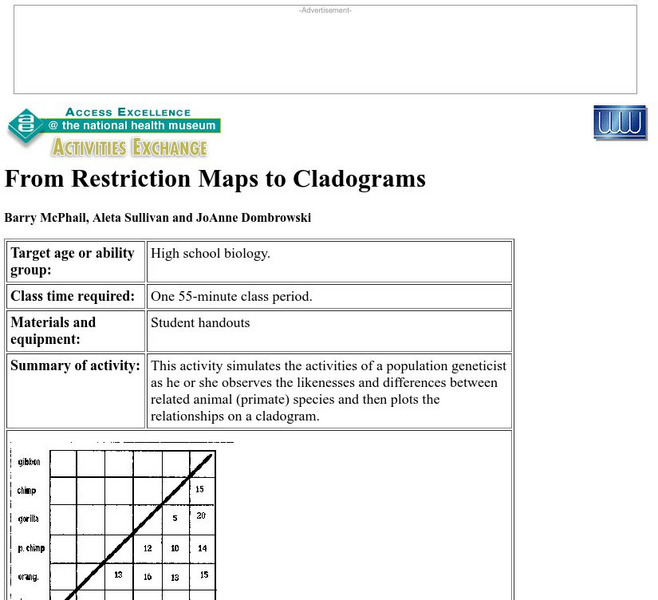Mocomi & Anibrain Digital Technologies
Mocomi: The Theory of Evolution
This slideshow provides a brief overview of Charles Darwin and his theory of evolution, natural selection and survival of the fittest.
National Health Museum
Nhm: Amino Acid Sequences Show Evolution
This lesson plan focuses on differences in the amino acid sequence of hemoglobin and myoglobin proteins. They use the number of differences to create a phylogenetic tree.
University of California
Understanding Evolution: An Introduction to Evolution
A textbook definition along with an explanation of the scientific theory of evolution.
Alabama Learning Exchange
Alex: Why Comparative Embryology Matters in the Real World
In this lesson, students compare similarities in the embryos of different organisms to look for features that would indicate common ancestry. They will then investigate how understanding this aspect of evolution has real-world...
Other
Plant and Animal Evolution: Homology
In this informative site, homologous is defined and the wings of birds and bats are compared to clarify the concept.
National Health Museum
Nhm: Restriction Maps to Cladograms Lesson
This lesson plan requires young scholars to analyze DNA restriction maps to determine the differences in the sequence for several primates and humans. They then use the information to create a cladogram.
BiologyWise
Biology Wise: Examples of Analogous Structures
Explains that analogous structures are ones that are similar in different organisms yet have no common ancestry. This type of phenomenon occurs with convergent evolution. Includes lots of examples for both animals and plants.
CK-12 Foundation
Ck 12: Plix Series: Comparative Anatomy: Comparative Embryology
[Free Registration/Login Required] Match the animals with their embryos and answer questions about their evolutionary ancestry.
PBS
Pbs: Comparative Embryology: The Vertebrate Body
Provides a student handout in PDF format that looks at the developmental stages of five vertebrate organisms from fertilization to adult form. Students can look at the pictures to see the similarities and differences at the embryo stage...





